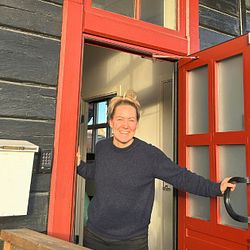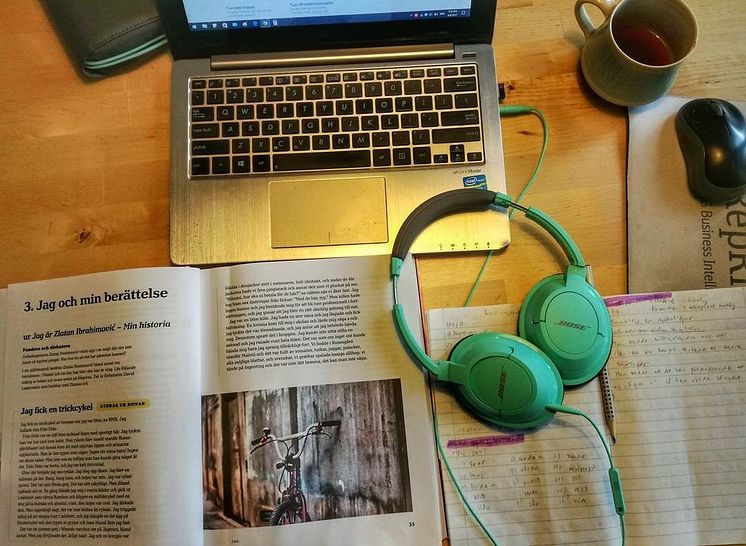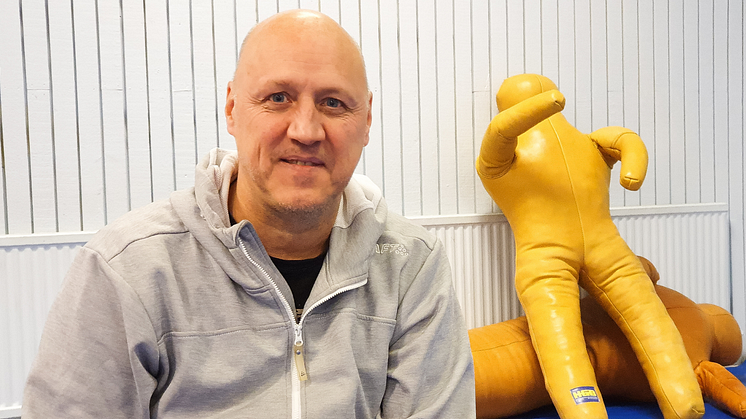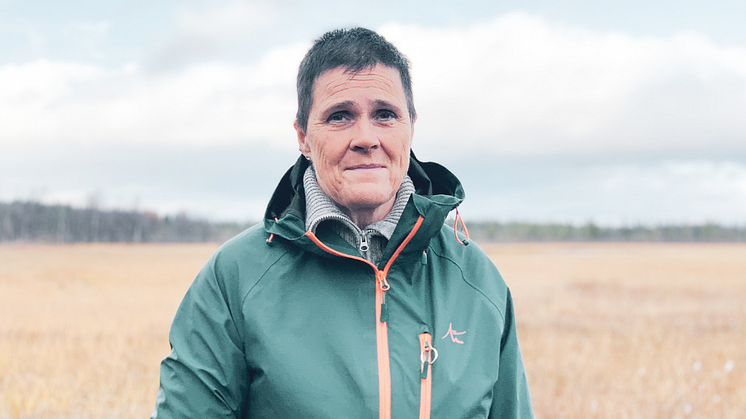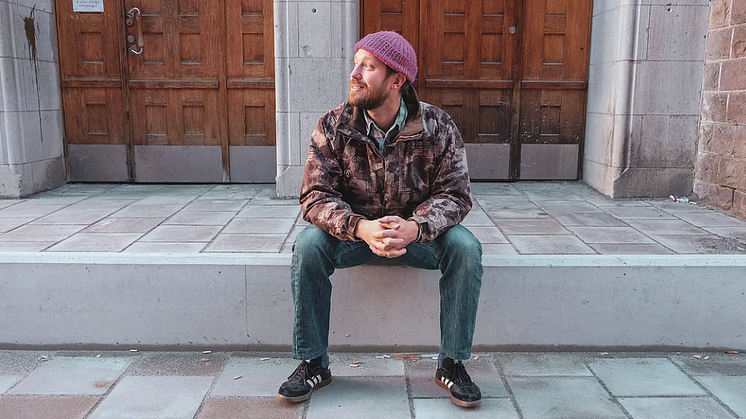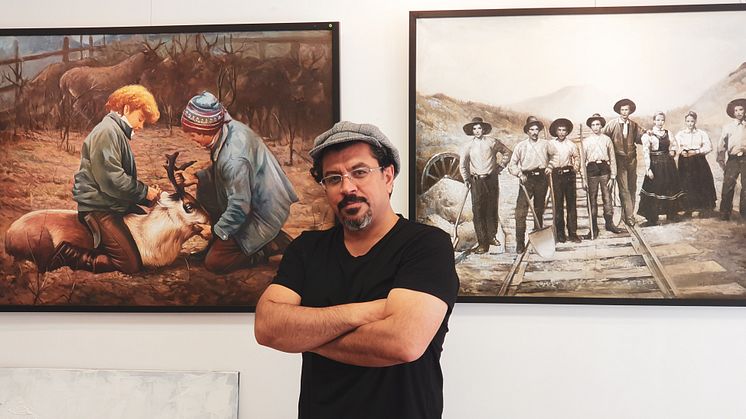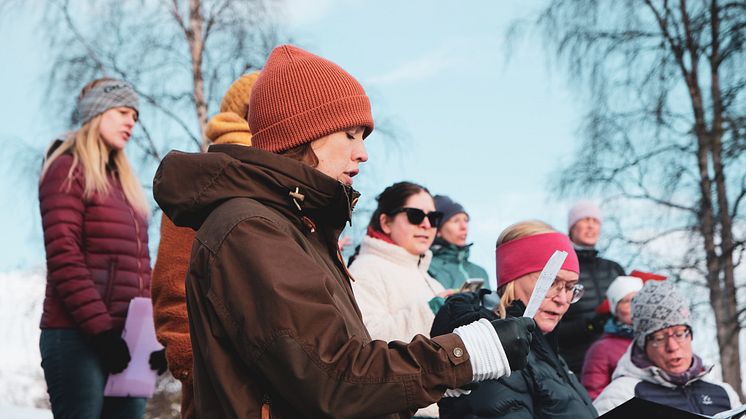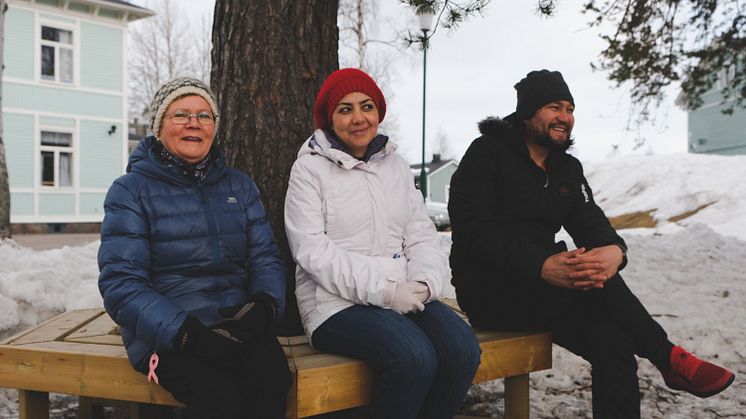
Blogginlägg -
Språkångest
Drafting materials and conducting trainings, doing presentations, creating exhaustive analytical reports were nearly second nature to me. Heck, I even used to host for events once in a while. I might be one of those that likes to talk in front crowds and wouldn't bat an eyelash if asked to present spontaneously.
Until I moved to Sweden.
Even before I moved to this country, I tried my best to prepare by taking a few Swedish courses online. But I was leaving my motherland (the Philippines), was still working full-time, and was trying to pack and sort the life I was leaving behind and the new life that I was about to embrace. Therefore Swedish was put in the backburner (even though I could count from ett to tio by that time).
Of all the worst-case scenarios and challenges that I had already envisioned happening, it was not the culture shock or homesickness that overwhelmed me but rather the language barrier.
I have read somewhere that the northern part of Sweden is more unforgiving and has lesser likelihood to land a job if you don't have Swedish under your belt. I am not saying that it is impossible to find work, but it definitely faces more challenges if you go about without svenska rather than with. Hence, enrolling in SFI was obviously the most reasonable and practical move for my integration.
There was a time, a long time ago, when I was an intensely expressive individual. So the fear that came along of not being able to create a sentence with what I ate for breakfast på svenska brought so much anxiety to me that I was nearly in tears every after SFI class.
Let me tell you a bit where this anxiety came from: a) I grew up in a culture wherein ideal communication stems from a place of nearly perfect grammar. And old me, in SFI, couldn't even place which word is an ett or an en! b) coming from a perspective of a person who built a career in a specialized field of communications and research, I was suddenly thrown in at the deep end of a language that is quite unforgiving.
Yes, swedish is quite unforgiving. One wrong pronunciation has the potential to lead to a misinterpretation. Some would argue that swedish grammar is similar to english therefore it would come easy to those who has a good command of the latter. Let me tell you that it ain't so. Furthermore, every individual has a different learning curve: some are starting from a totally different alphabet while others from a difficult level of adult learning.
I was very conscious of my grammar and my pronunciation that I find myself clamming up most of the time and feeling inferior. I always had this feeling, this heaviness that is almost similar to remorse, that, had it been in my mother tongue, I would have expressed my views fluently and fluidly. But still I persisted, or should I say, kämpade på. There is no way but THAT way. I spoke swedish at work, with my family and to a few of my friends.
A colleague of mine once asked me why I didn't talk during an APT. She said she was interested to hear how the pre-school system works in my country. Perhaps that was the turning point, an epiphany you may call it, that may it be being silent or speaking up, my swedish grammar and pronunciation will never be perfect, not in the next few years or maybe never ever.
I still have moments of ”language anxiety” or ”språkångest” every now and then. But definitely lesser now than before. And in times like these, I switch to the old reliable swenglish. Because it is better to get your point across than to suppress those thoughts and ideas whatever they may be, eller hur?
Om Face of Gällivare
Face of Gällivare är ett samhällsprojekt som arbetar för inkludering, jämställdhet, mångfald och attitydförändring i Gällivare kommun. Genom ett normkritiskt förhållningssätt, reflektion och kunskap skapar vi en varmare känsla mellan husen. Face of Gällivare har utvecklat en utbildningsserie som hjälper arbetsplatser att reflektera kring den kultur som råder på en arbetsplats. Den har stor betydelse för hur de anställda trivs och hur effektivt arbetet blir.
Projektägare: Gällivare Näringsliv AB.
Projektet finansieras av: Europeiska jordbruksfonden för landsbygdsutveckling, Leader Polaris, Gällivare kommun, LKAB, Boliden, Region Norrbotten och Sparbanken Nord.
